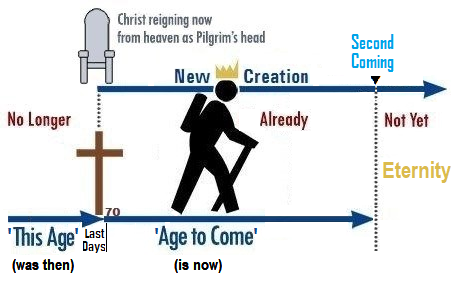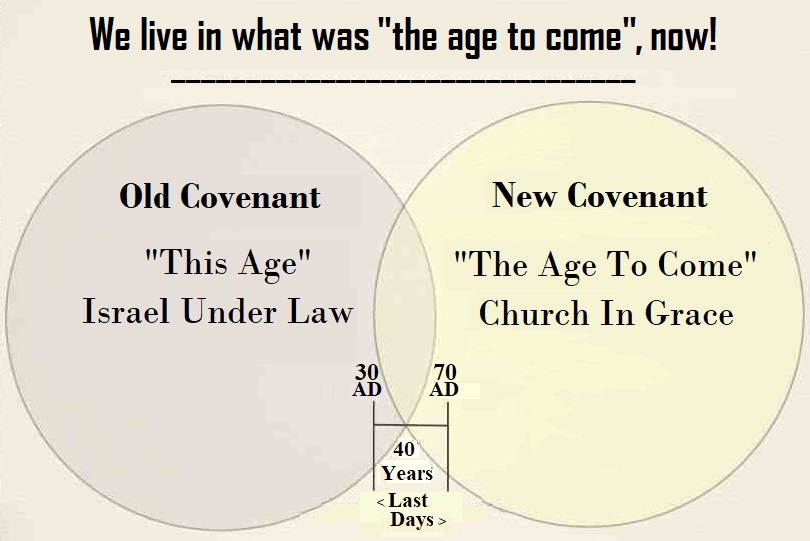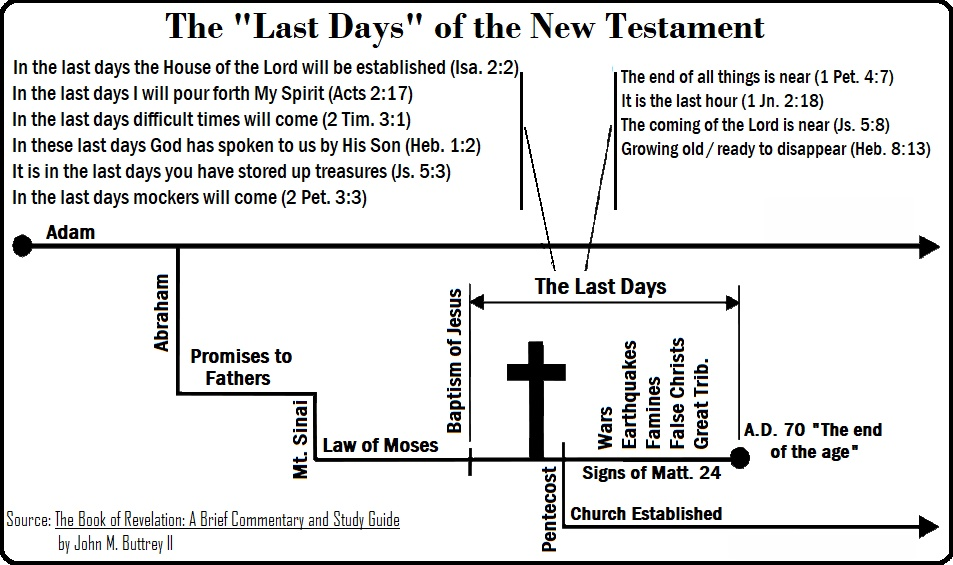Not that I have already attained, or am already perfected; but I press on, that I may lay hold of that for which Christ Jesus has also laid hold of me. Brethren, I do not count myself to have apprehended; but one thing I do, forgetting those things which are behind and reaching forward to those things which are ahead, I press toward the goal for the prize of the upward call of God in Christ Jesus. -Philippians 3:12-14
...“the consummation of the age,” is a phrase that has been much abused and widely misunderstood. The common translation, “end of the world,” has been a delusion to many readers of the English Bible. It has helped to perpetuate the unscriptural notion that the coming and kingdom of Christ are not facts of the past, present, and future, but of the future only. …
Those who maintain the doctrine, and, indeed, not a few who oppose it, fall into error and inconsistency by failing to apprehend the true meaning of the phrase “the end of the age.”
For, first of all, they do not determine clearly what age (aeon) is contemplated in such a text as Matt. 24:3. They quite generally assume that the period of the Gospel dispensation is meant. But nothing is more familiar in the Jewish terminology of our Lord’s time than the current phrases עו̇לָם הַוֶּה and עו̇לָם הַבָּא, this age and the age to come. The period which preceded the coming of the Messiah was spoken of as this age; that which followed His [first] coming was the age to come.
…by this age they meant and could mean nothing else than the current period in which they were living, the then present age. The question of the disciples, as recorded [in Matthew 24:3], could therefore only refer to the pre-Messianic age, and its consummation was, as we have seen, associated in their thought with the overthrow of the temple. But even were it admitted that their notion of “the consummation of the age” was erroneous, the teaching of Jesus was emphatic beyond all rational question that that generation should not pass away before all those things of which they inquired should be fulfilled.
The age to come, the Messianic time, would accordingly be the period that would follow immediately after the termination of the pre-Messianic age. That time had not yet come when Jesus spoke. According to the whole trend of New Testament teaching that age and the Messianic kingdom were near or at hand. Christ’s ministry fell in the last days of an aeon.
-Milton Terry, Biblical Apocalyptics
In that He says, "A new covenant," He has made the first obsolete. Now what is becoming obsolete and growing old is ready to vanish away. -Hebrews 8:13
...now, once at the end of the ages, He has appeared to put away sin by the sacrifice of Himself. -Hebrews 9:26
Now all these things happened to them [old covenant Israel] as examples, and they were written for our admonition, upon whom the ends of the ages have come. -1 Corinthians 10:11
~



